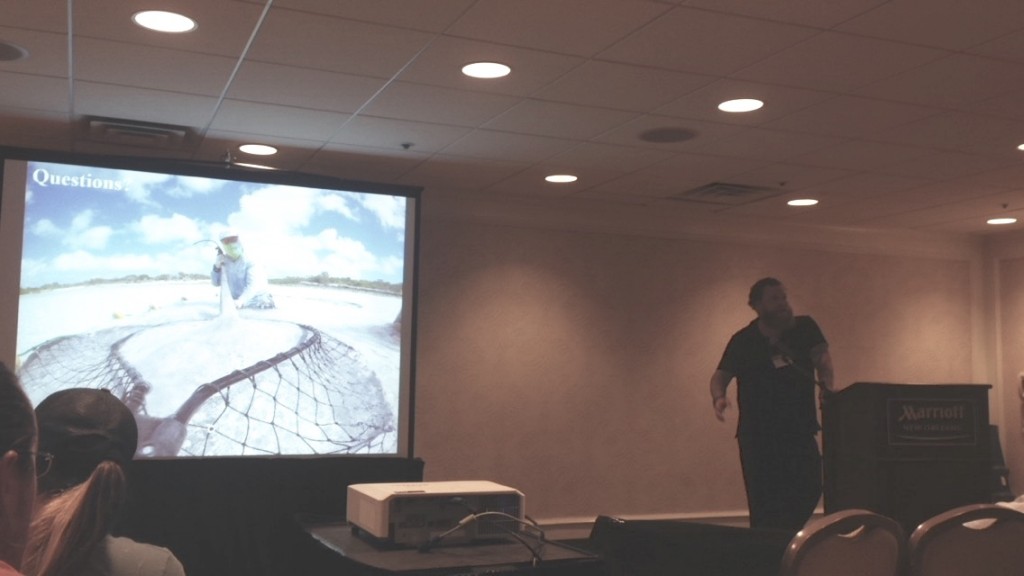The American Elasmobranch Society recently met in New Orleans for their annual meeting, attended by an international collective of shark and ray scientists to discuss current and ongoing work in this very eclectic field. The Cape Eleuthera Institute was represented by Oliver Shipley and Dr. Owen O’Shea of the Shark Research and Conservation Program, both giving oral presentations to a wide range of scientists from all over the world. Oliver’s presentation focused on novel methods for post-capture release of a small bodied deep-sea shark – the Cuban dogfish – and how novel approaches may increase survivorship during by-catch events. Owen spoke of the recently ‘re-discovered’ Caribbean whiptail stingray and discussed its contemporary distribution in The Bahamas and implications for management.

The week spent in New Orleans was a huge success, with the convening of several meetings and discussions pertaining to the global fin print project and a whole day dedicated to a global sawfish research symposium. Among some of the other stand out talks were the very first satellite tracking of manta rays conducted in Sudan, juvenile white shark movement in California and challenges for management of large ranging sharks, such as the great hammerhead and oceanic whitetip. It was a fantastic week with many old relationships rejuvenated, and the fostering of new ones cemented, with collaborative studies already having been discussed.